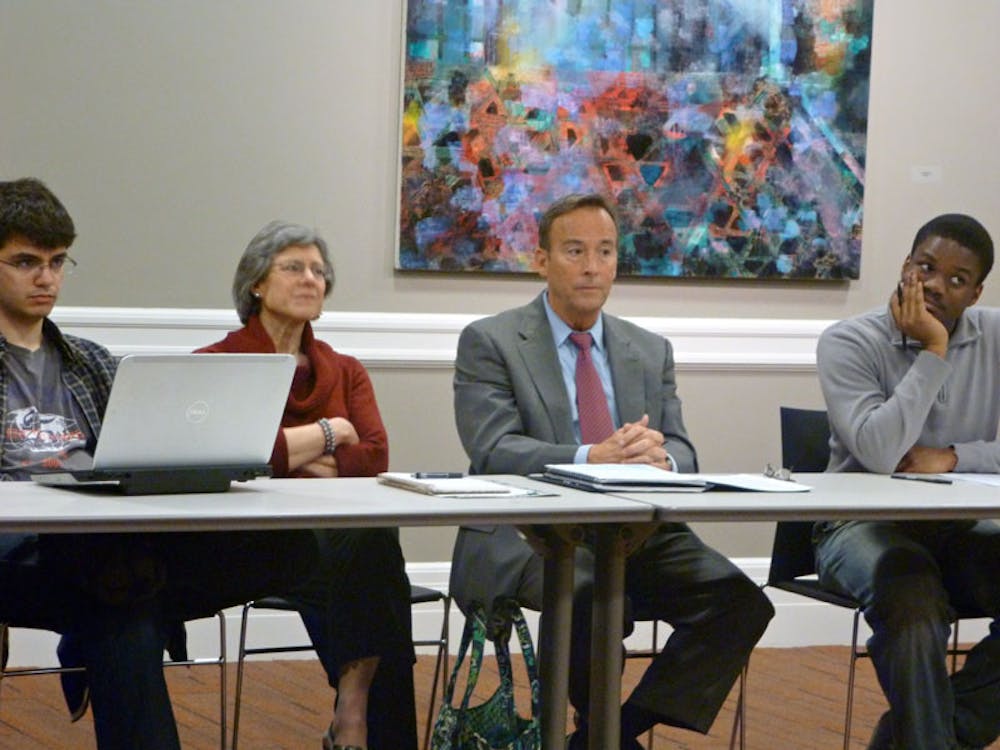The strategic planning Committee on Financial Aid stressed the importance of lowering the summer earnings expectation and implementing need-blind admissions for international applicants at the Undergraduate Council of Students’ meeting Wednesday.
Reducing the summer earnings expectation represents a “quite urgent … short-term need,” said Susan Harvey, co-chair of the committee and professor of religious studies.
The current summer earnings expectation prevents students on financial aid from taking unpaid summer internships, which puts them “at a real disadvantage” in the job market, Harvey said. Summer internships build students’ resumes and make them more successful job applicants, Harvey added.
“That summer contribution can really constrain what a student on financial aid can do,” said Ken Miller ’70 P’02, a committee member and professor of biology. Miller cited his own unpaid internship from when he was an undergraduate as a formative experience current undergraduates on financial aid might not be able to have.
Besides the summer earnings expectation, need-blind admissions for international students also emerged as a major topic of discussion.
“I’m an international student, and I can’t tell you how much it means that you want to improve financial aid for international students,” said Maahika Srinivasan ’15, UCS Corporation liaison. “We pride ourselves on diversity as a campus. It seems counter-intuitive that we’re not committed to international diversity (by going need-blind for international applicants).”
Very few institutions can afford to go need-blind for international applicants, including Brown’s peers, said Jim Miller ’73, committee member and dean of admission.
One challenge of going need-blind for international applicants is that international students cannot get domestic visas to work in the United States, so the financial aid they need is often higher, Harvey said.
Anthony White ’13, UCS president, asked why the committee focused on improving financial aid for applicants from middle-income families in its report.
Students from the middle-income bracket in particular often receive better financial aid packages from Brown’s peer institutions, said Jim Tilton, committee chair and director of financial aid.
“There’s a competitive aspect to it. People are going other places because they get better deals,” Miller said.
Following the presentation from the Committee on Financial Aid, the council appointed a new elections board chair. Caleb Miller ’16, Campus Life Committee member and a senior staff writer for The Herald, will run the UCS elections process this spring.
Caleb Miller will select his own board to help facilitate the elections process, White said.
“He’s really active and motivated. He had a lot of good ideas when he worked on admissions with me,” said E-Soo Kim ’15, UCS general body member, in praise of Caleb Miller’s selection.
White and Brandon Tomasso ’13, UCS vice president, briefed the council on their experience at the Ivy Policy Conference at Yale last weekend. The conference revealed key differences between Brown and its Ivy League peers, White said. Brown’s lack of both an honor code and pre-professional atmosphere represent distinctive features that separate it from its peers, White said. Brown also seems to suffer from more alcohol-related crimes — such as damage to exit signs and thefts from lounges — than its peers, Tomasso said.

ADVERTISEMENT




